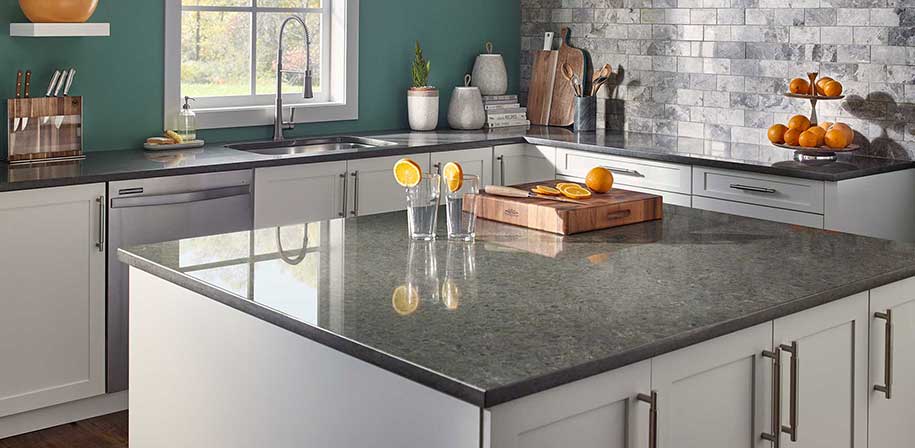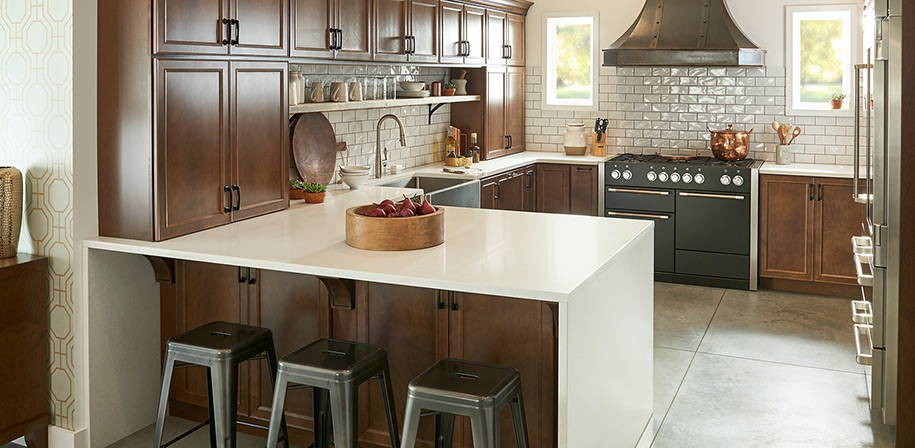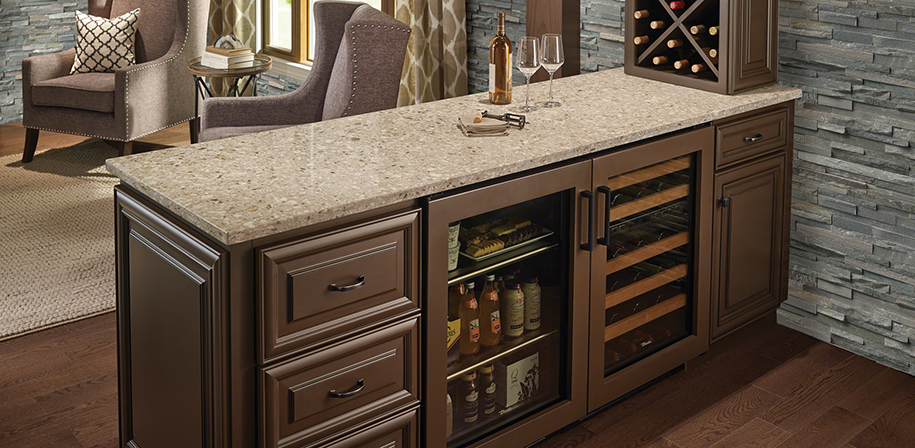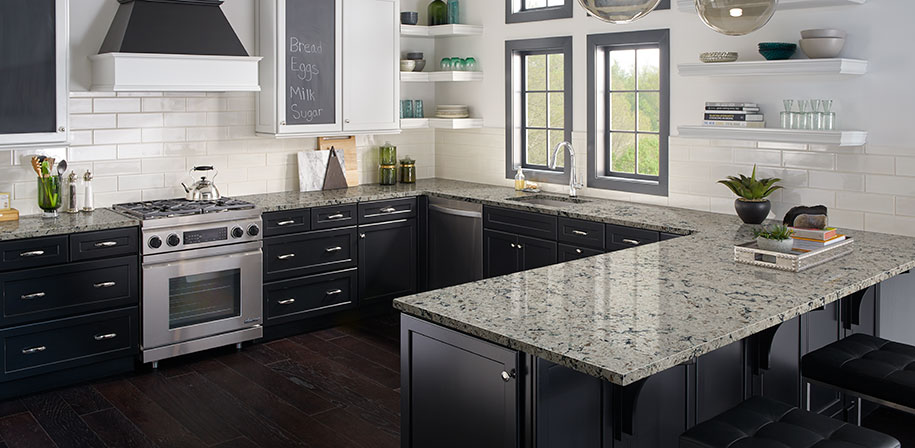Quartz countertops are primarily made of engineered quartz stone, which is a combination of crushed natural quartz crystals (usually around 90-95% by weight) and resins, polymers, and pigments. The process involves binding these materials together under high pressure and high heat to create a durable and non-porous surface. The resulting quartz countertops are known for their hardness, resistance to scratches and stains, and a wide range of color options. Additionally, some manufacturers may include other materials like recycled glass or metallic flecks to enhance the appearance of the countertop.
Quartz countertops are versatile and can be used in various rooms throughout a home. Commonly, they are installed in:
- Kitchens: Quartz countertops are popular choices for kitchen surfaces due to their durability, resistance to stains, and ease of maintenance. They can withstand the demands of a busy kitchen environment.
- Bathrooms: Quartz is also commonly used for bathroom countertops and vanity tops. Its non-porous nature makes it resistant to moisture, which is important in a bathroom setting.
- Laundry Rooms: Given their durability and resistance to stains, quartz countertops are suitable for laundry rooms where spills and messes can occur.
- Utility Rooms: In areas like utility rooms or mudrooms, where practicality and resistance to wear and tear are essential, quartz countertops can be a good choice.
- Commercial Spaces: Quartz countertops are also used in commercial settings, such as restaurants and offices, where a durable and low-maintenance surface is desired.
Keep in mind that while quartz is a versatile material, it may not be suitable for outdoor use, as prolonged exposure to sunlight can cause discoloration over time. Additionally, it’s essential to follow the manufacturer’s guidelines for care and maintenance to ensure the longevity of the quartz countertops.



